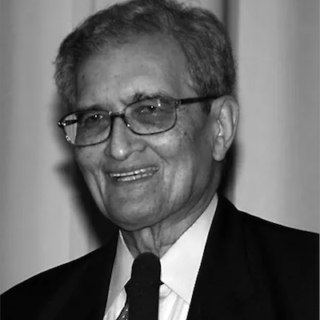I have often wondered why I have been so deeply moved and influenced by Buddha, right from the time I first encountered his thoughts—when my grandfather gave me a short book on Gautama. I must have been about eleven or twelve then, and I remember that I was completely bowled over. Buddha remains, in some basic sense, very contemporary, and it is that aspect of the heritage of Buddha that is the subject of this essay.
When young Gautama left his princely home in the foothills of the Himalayas in search of enlightenment, he was moved specifically by the sight of mortality, morbidity, and disability, each of which agitated him greatly. He was also distressed by the ignorance he saw around him. It is easy to understand the sources of Gautama Buddha’s agony, particularly the deprivations and insecurities of human life. Anchored in the “here-and-now,” Buddha’s thinking proceeded also toward more transcendental reflections—toward a metaphysical understanding of the world. I shall not, however, go into that aspect of Buddha’s thoughts here, and will concentrate instead on his reasoned approach to worldly problems. Since Buddhism is often taken to be a very unworldly religion, what I am trying to present here is an account and analysis of “another Buddha”—one who is no less real than the person who has been revered (and sometimes deified) by the dominant schools of Buddhist religion for over two thousand years.
Buddha’s ideas—and the person behind those ideas—have a remarkable approachability that is quite striking. Why does he seem so approachable? One reason it is easier to draw on Buddha’s ideas than those of many other religious leaders is that the story of his life makes it clear that he was concerned about problems that move all ordinary human beings: fear of mortality, the tragedy of old age and disability, the terrible impact of disease on human life. And we too see the dangers of ignorance and of badly organized societies, to which Buddha would give much thought as his own enlightenment proceeded. There is a basic humanity in the story of Buddha’s life that is easy to access and absorb in our own lives.
To read or purchase the full text of this article, click here.
More in this issue

Spring 2014 (28.1) • Essay
Eliminating Extreme Inequality: A Sustainable Development Goal, 2015–2030
Sustainable development cannot be achieved while ignoring extreme disparities. It is imperative that the post-MDG agenda focus on inequality.
Spring 2014 (28.1) • Essay
Drones and the International Rule of Law
U.S. drone strikes represent a significant challenge to the international rule of law. This is not because they “violate” international law; ironically, drone strikes ...
Spring 2014 (28.1) • Review
The Politics and Ethics of Identity: In Search of Ourselves by Richard Ned Lebow
Lebow argues that nearly all the claims made by social theorists emphasizing the importance of identity are wrong.
